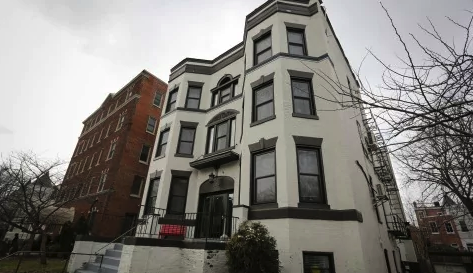Tough restrictions on short-term rentals could curb gentrification and high rent

By Valerie Ervin and H. Lionel Edmonds
There is a housing crisis in the District. Our housing stock is being squeezed, and it is increasingly difficult for working people to afford to live in the District. These constraints mean that District residents need access to every single unit of housing we have available in the District. Every home that is converted into a full-time tourist rental is a home that a District family cannot live in. It’s as simple as that.
Home-sharing has a long and wonderful tradition. It can be a great way to meet new people or to help ease the financial burden of cash-strapped residents. In the past year alone, it’s become $5,000 more expensive to rent a two-bedroom apartment. For some people, home-sharing is a way to supplement the family income enough to afford the rising rents in the city.
What is not good for the District is when commercial operators and developers scoop up homes, converting them into de-facto illegal hotels on platforms such as Airbnb and call it “home-sharing.”
This is happening all over our city. In Columbia Heights, a building with 20 rent-controlled homes was converted into a full-time Airbnb hotel. In Adams Morgan, the same thing happened to an 11-unit rent-controlled building. In April, Attorney General Karl A. Racine filed suit against an Armenian company that had already converted 70 homes in the District into de facto hotel rooms. These are not examples of home-sharing.
In a recent Post Local Opinions essay, to name one recent example, Dia Michels wrote that if passed, the bill would “completely ban some homeowners’ primary source of income.” This is false. Under the bill proposed by Council member Kenyan R. McDuffie (D-Ward 5), those residents who rent out their primary residence will be able to do so 365 nights a year, as long as they are present in the home. The legislation would limit the practice to the homeowner’s primary residence.
This isn’t a radical proposal. It is supported by Airbnb’s own chief executive. “We want to limit hosts to one home — just the home you rent. The basic premise is if a city has a housing constraint — [such as] San Francisco and New York City — we want people to rent the homes they live in and not take units off the market,” Brian Chesky told Fortune in March.
Commercial operators give home-sharing a bad name, constraining our housing stock and making it harder for families to find a place to live. We’re fighting to protect the District’s housing for those who need it most: hard-working families. Meanwhile, we want D.C. residents to be able to practice legitimate home-sharing without having to compete with the deep-pocketed investors and developers who are speculating in D.C. neighborhoods by buying up homes and converting them into tourist rentals.
Introduced by McDuffie in January, the bill would create a fair set of rules for platforms such as Airbnb so true home-sharing could continue. The proposed legislation would make it easier for homeowners to continue to make their primary residence available for short-term rental while cracking down on bad actors.
A study conducted by ShareBetter D.C., of which Working Families Party D.C. is a member, shows that in 2016 commercial operators on Airbnb had amassed roughly 2,000 short-term rentals in the District, making up an astounding 37 percent of total listings. Even worse, commercial listings grew by 34 percent compared to the year before. There is no way to check on whether a listing on Airbnb is complying with the law or not. As the attorney general’s recent lawsuit makes evident, it is extremely easy to violate our housing laws. This is clearly not a system set up to protect the District’s ever-shrinking stock of housing. The longer we wait to put in place sensible regulations, the greater the real-life ramifications for working families in the District.
It’s time to make sure we are prioritizing housing for District residents, first and foremost. One step in this direction is creating a fair set of rules for platforms such as Airbnb, and that’s why McDuffie’s legislation is desperately needed.
District lawmakers must pass this bill without delay.